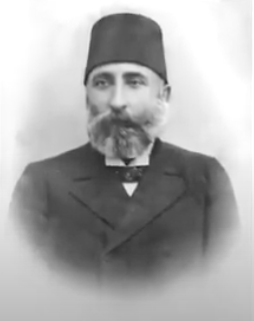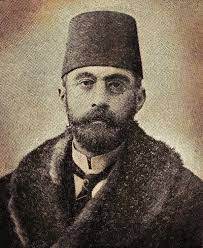Related Research Articles

Kurdistan, or Greater Kurdistan, is a roughly defined geo-cultural region in West Asia wherein the Kurds form a prominent majority population and the Kurdish culture, languages, and national identity have historically been based. Geographically, Kurdistan roughly encompasses the northwestern Zagros and the eastern Taurus mountain ranges.

The Kurds are an Iranian ethnic group in the Middle East. They have historically inhabited the mountainous areas to the south of Lake Van and Lake Urmia, a geographical area collectively referred to as Kurdistan. Most Kurds speak Northern Kurdish Kurmanji Kurdish (Kurmanji) and Central Kurdish (Sorani).

The Treaty of Sèvres was a 1920 treaty signed between the Allies of World War I and the Ottoman Empire. The treaty ceded large parts of Ottoman territory to France, the United Kingdom, Greece and Italy, as well as creating large occupation zones within the Ottoman Empire. It was one of a series of treaties that the Central Powers signed with the Allied Powers after their defeat in World War I. Hostilities had already ended with the Armistice of Mudros.

The Turkish War of Independence was a series of military campaigns and a revolution waged by the Turkish National Movement, after the Ottoman Empire was occupied and partitioned following its defeat in World War I. The conflict was between the Turkish Nationalists against Allied and separatist forces over the application of Wilsonian principles, especially self-determination, in post-World War I Anatolia and eastern Thrace. The revolution concluded the collapse of the Ottoman Empire; ended of the Ottoman sultanate and Ottoman caliphate, and established the Republic of Turkey. This resulted in the transfer of sovereignty from the sultan-caliph to the nation, setting the stage for nationalist revolutionary reform in Republican Turkey.

The flag of Kurdistan is the flag of Kurds and was created by the Society for the Rise of Kurdistan in 1920. It would later, in different variants, be adopted as the national flag of different Kurdish states including Republic of Ararat, Republic of Mahabad and most recently by Kurdistan Region in 1992. Moreover, the Kingdom of Kurdistan used the crescent flag which was also considered a Kurdish flag.

Hakkâri Province, is a province in the southeast of Turkey. The administrative centre is the city of Hakkâri. Its area is 7,095 km2, and its population is 287,625 (2023). The current Governor is Ali Çelik. The province encompasses 8 municipalities, 140 villages and 313 hamlets.

Turkish Kurdistan or Northern Kurdistan is the southeastern part of Turkey where Kurds form the predominant ethnic group. The Kurdish Institute of Paris estimates that there are 20 million Kurds living in Turkey, the majority of them in the southeast.

Mehmed Şerif Pasha, was a Ottoman-Kurdish Politician, Diplomat, Soldier, Journalist who first acted as an Ottoman statesman, but later as a Kurdish nationalist and a founding member of Kurd Society for Cooperation and Progress and representative of the Society for the Elevation of Kurdistan to the Paris Peace Conference (1919–1920). He was a leading Kurdish nationalist.

Kurdish nationalist uprisings have periodically occurred in Turkey, beginning with the Turkish War of Independence and the consequent transition from the Ottoman Empire to the modern Turkish state and continuing to the present day with the current PKK–Turkey conflict.

Kurdish nationalism is a nationalist political movement which asserts that Kurds are a nation and espouses the creation of an independent Kurdistan from Iran, Iraq, Syria, and Turkey.
Society for the Rise of Kurdistan also known as the Society for the Advancement of Kurdistan (SAK), was secretly established in Constantinople on 6 November 1917 and officially announced organization formed on the 17 December 1918. It was headquartered in Istanbul, with the aim of creating an independent Kurdish state in eastern Turkey. The Society based its statements for an independent or autonomous Kurdistan on the Treaty of Sèvres and the Fourteen Points stipulated by Woodrow Wilson. The society formed many local dependencies in the eastern provinces of Turkey.

The nationalist movement among the Kurdish people first emerged in the late 19th century with an uprising in 1880 led by Sheik Ubeydullah. Many Kurds worked with other opponents of the Ottoman regime within the Committee of Union and Progress (CUP). A growth in ethnic consciousness at the start of the 20th century was spearheaded by the Society for the Elevation of Kurdistan. Some Kurdish nationalist groups agitated for secession, others for autonomy.

Kamuran Ali Bedirxan was a Kurdish politician, lawyer and writer.

During World War I, several Kurdish rebellions took place within the Ottoman Empire. The rebellions were preceded by the emergence of early Kurdish nationalism and Kurdish revolts in Bitlis in 1907 and early 1914. The primary Kurdish war aim was the creation of an independent Kurdish state, a goal that Britain and Russia promised to fulfil in order to incite Kurdish resistance. Other reasons for resistance include a fear that they would suffer the same fate as the Armenians, the desire for more autonomy, and according to Ottoman sources, banditry.

Emin Ali Bedir Khan was a founding member of the Kurd Society for Cooperation and Progress and vice president of the Society for the Elevation of Kurdistan and Kurdish politician.

The Kurdish Society for Cooperation and Progress "Kürt Teavün ve Terakki Cemiyeti" (KTTC) was founded September 1908 in Constantinople. Also known as the Kurdish Society for Progress and Mutual Aid, Kurdish Society for Mutual Aid and Progress, Kurdish Society for Support and Progress, Kurdish Society for Assistance and Progress, Kurdish Society for Solidarity and Progress, Kurdish Progressive League, Kurdish League, Kurdish Club and Kurdish Society. The society published a Gazette, which was the first legal Kurdish publication, it debated issues surrounding history, language, national unity and many other topics effecting Kurds. It was the first ever political Kurdish organization and was influenced by European ideas. It called for a political, economic and social awakening of Kurdistan. The announcement of its establishment was made in September 1908 and backed by 500 leading Kurdish intellectuals and statesmen. The membership of the society grew very fast in cities and towns with large Kurdish populations. The society had a cultural branch, which established a Kurdish language school for children in Çemberlitas, Constantinople, led by Abdurrahman Bedir Khan. It was closed down in 1909 and reestablished and renamed in 1917 as the Society for the Elevation of Kurdistan.

Abdulkadir Ubeydullah was a President of the Kurdish Society for Cooperation and Progress (KTTC) and later the Society for the Rise of Kurdistan. He was a leading Kurdish intellectual and a once also a member of the Senate of the Ottoman Empire. He also took part in the uprising of Sheik Ubeydullah led by his father and was accused of having taken part in the Sheikh Said rebellion.

Süreyya Bedir Khan was a Kurdish prince, a descendant of Bedir Khan Beg and a member of the Bedir Khan family. He was an influent supporter of Kurdish independence, a journalist and author of several books. His works are also known under his pen-name Bletch Chirguh. Like other members of the Bedir Khan family, he claimed an ancestry to Khalid Ibn al-Walid, the Sword of Islam and general and companion of the Islamic prophet Muhammad.

Mevlanzade Rifat Bey, was an Ottoman Kurdish journalist and poet.

The Kurdish state was an autonomous government in Southern Kurdistan that existed from October 1918 to June 1919.
References
- 1 2 3 4 5 6 Özoğlu, Hakan (2011). From Caliphate to Secular State: Power Struggle in the Early Turkish Republic. ABC-CLIO. p. 45. ISBN 978-0313379567.
- ↑ British Documents on Foreign Affairs--reports and Papers from the Foreign Office Confidential Print: The end of the war, 1918-1920. University Publications of America. 1985. p. 357. ISBN 089093603X.
- ↑ "Belleten, Issues 221-222". Türk Tarih Kurumu Basimevi: 188.
- ↑ Henning, Barbara (2018). Narratives of the History of the Ottoman-Kurdish Bedirhani Family in Imperial and Post-Imperial Contexts: Continuities and Changes. University of Bamberg Press. p. 449. ISBN 978-3863095512.